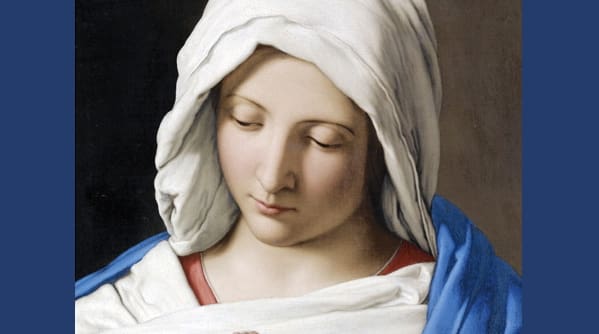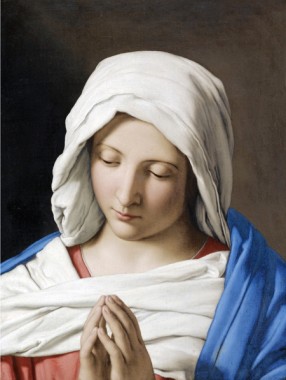1917
1917
What do Russia, the rise of Communism, the fall of Communism, Islam and Catholicism share in common? Fatima, 1917. We will unpack these connections over the next few blog posts as we reflect on the revolutionary message of Fatima.
When we look at the complex web of world events today, it can be too easy to get caught up in daily news reports that tirelessly remind us we are living in one of the most challenging times in history, but never ask the right questions, 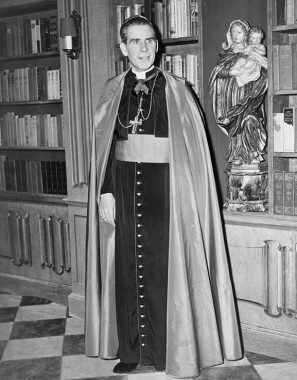 beginning with “Why?” What is tragic in the midst of that reporting is that most of the time, we do not receive the truth of world events when it comes to their causes. And this is why having a Catholic view of the world is so important. Society has been conditioned to focus only on what are the symptoms of today’s evils and not relentlessly pursue the truth of their causes. When we have the courage to pursue the truth about “what is wrong with the world” (to borrow a phrase of G.K. Chesterton), we discover that most things in the present world are not what they seem. And instead of focusing on all the “whats” going on in the world, we should be focusing on the “why;” because, as Venerable Fulton Sheen said during World War II, the real reason behind today’s wars and evils is not dialectical, but theological. The world has rejected God and that rejection comes with earth-shattering consequences—consequences we are living with today.
beginning with “Why?” What is tragic in the midst of that reporting is that most of the time, we do not receive the truth of world events when it comes to their causes. And this is why having a Catholic view of the world is so important. Society has been conditioned to focus only on what are the symptoms of today’s evils and not relentlessly pursue the truth of their causes. When we have the courage to pursue the truth about “what is wrong with the world” (to borrow a phrase of G.K. Chesterton), we discover that most things in the present world are not what they seem. And instead of focusing on all the “whats” going on in the world, we should be focusing on the “why;” because, as Venerable Fulton Sheen said during World War II, the real reason behind today’s wars and evils is not dialectical, but theological. The world has rejected God and that rejection comes with earth-shattering consequences—consequences we are living with today.
So, how do we understand this reality and what do we do about it? After the French Revolution dealt the death blow to the last vestiges of Christendom, which included the rejection of intelligence (for God is Intelligence Himself), God did not abandon His Church—nor did He abandon a deeply wounded world and those declared to be His enemies.
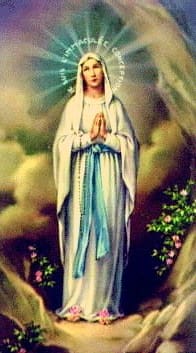 Beginning in 1830 with Mary’s appearances to St. Catherine Labourè, God inaugurated the greatest Marian age in history, and He did so in the same city which launched the darkest philosophical age in world history, Paris. Now, the very fact that God sent His Mother onto the world stage should be enough to make us pause and ask how serious our times truly are that the King of Kings sent His own Mother as a last resort to beckon the world back to Christ.
Beginning in 1830 with Mary’s appearances to St. Catherine Labourè, God inaugurated the greatest Marian age in history, and He did so in the same city which launched the darkest philosophical age in world history, Paris. Now, the very fact that God sent His Mother onto the world stage should be enough to make us pause and ask how serious our times truly are that the King of Kings sent His own Mother as a last resort to beckon the world back to Christ.
Following Paris were the Marian apparitions at La Salette in 1846, followed by those at Lourdes in 1858. Shortly after Lourdes, in 1862, St. John Bosco received his now famous 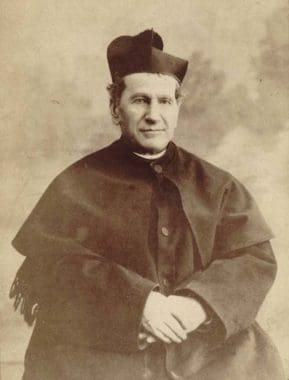 vision of the two pillars that would save the Church during its most tumultuous time in history—the pillars of Mary, Help of Christians, and Jesus in the Holy Eucharist. In his vision, it was only when the Church chained itself to both pillars that She was able to defeat Her enemies. And in his dream, it was the Pope who steered the ship and bound it between those two pillars. Mary, the Eucharist and fidelity to the Pope are at the heart of surviving our troubling times.
vision of the two pillars that would save the Church during its most tumultuous time in history—the pillars of Mary, Help of Christians, and Jesus in the Holy Eucharist. In his vision, it was only when the Church chained itself to both pillars that She was able to defeat Her enemies. And in his dream, it was the Pope who steered the ship and bound it between those two pillars. Mary, the Eucharist and fidelity to the Pope are at the heart of surviving our troubling times.
The prophetic nature of this dream of Don Bosco was already being played out by Mary’s visitations just mentioned and would be confirmed shortly after during a year which marked the announcement of two revolutions: 1917.
It was in 1917 that Russia would declare its revolution against God, replacing God with the counterfeit absolute of the totalitarian state. We know it as the Bolshevik Revolution of 1917, which began the cancerous spread of Communism in the East. At the same time another revolution was declared that would involve the revolution within the heart of every man, and it took place in an obscure city in Portugal, a little place whose name is now known in every corner of the world: Fatima.
Venerable Fulton Sheen described how Mary’s visitations to Fatima were no mere coincidence as they played a significant part in God’s plan for Russia and the world:
It is particularly interesting that the theology of the Russians, before they were overshadowed by the cold heart of the anti-God, taught that, when the world rejected the Heavenly Father, He sent His Divine Son, Jesus Christ, to illumine the world. Then they went on to predict that, when the world would reject Our Lord as it has done today, on that Dark Night the light of His Mother would arise to illumine the darkness and lead the world to peace. The beautiful revelation of Our Blessed Mother at Fatima in Portugal from April to October 1917 was another proof of the Russian thesis that, when the world would fight against the Savior, He would send His Mother to save us. And her great revelation took place in the very month the Bolshevik Revolution began (The World’s First Love, Chapter 22, paragraph 12).
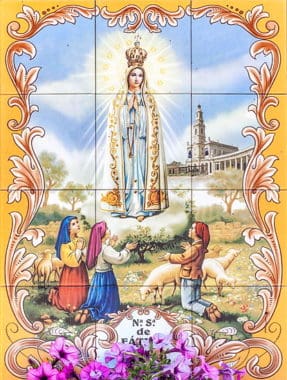
Most are familiar with the apparitions of Mary between the months of May and October 1917 to the three children: Lucia, Jacinta and Francisco. But, many do not know that the seeds of the Marian revolution would be sewn a year prior in 1916 and in a way that aligns completely with the message of Don Bosco’s dream of the two pillars. In the Spring of 1916 “the Angel of Portugal,” who first identified itself as “the angel of peace,” visited the three little seers and offered them a catechesis on prayer and adoration in preparation for the coming of the Mother of God and her message to the world.
The oldest of the seers, Lucia, described the encounter in this way [taken from the EWTN website]:
. . . a light whiter than snow in the form of a young man, quite transparent, and as brilliant as crystal in the rays of the sun. As he came near we were able to see his features. We were astonished and absorbed and we said nothing to one another. And then he said:
[The angel said]: Do not be afraid. I am the angel of peace. Pray with me.
He knelt, bending his forehead to the ground. With a supernatural impulse we did the same, repeating the words we heard him say:
My God, I believe, I adore, I hope, and I love You. I ask pardon for those who do not believe, do not adore, do not hope, and do not love You.
After repeating this prayer three times the angel rose and said to us:
Pray in this way. The hearts of Jesus and Mary are ready to listen to you.
In the third and final apparition of the Angel of Portugal, the angel taught the children a beautiful prayer of adoration of the Blessed Sacrament as recounted by Lucia:
After we had repeated this prayer I don’t know how many time[s] we saw… shining over us a strange light. We lifted our heads to see what was happening. [T]he Angel was holding in his left hand a chalice and over it, in the air, was a host from which drops of blood fell into the chalice. The Angel leaves the chalice in the air, kneels near us and tells us to repeat three times:
Most Holy Trinity, Father, Son and Holy Spirit, I adore You profoundly, and I offer You the Most Precious Body, Blood, Soul and Divinity of Jesus Christ, present in all the tabernacles of the world, in reparation for the outrages, sacrileges and indifferences by which He is offended. And by the infinite merits of His most Sacred Heart and the Immaculate Heart of Mary, I beg the conversion of poor sinners.
We therefore see that the proper preparation for the visitations of the Blessed Virgin Mary (and integral to her message) involved frequent acts of adoration, frequent prayers of reparation and adoration of the Blessed Sacrament. We also see in these angelic messages the revelation of the end for which Mary will 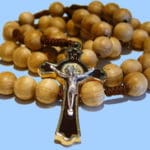 come – to restore peace in the world by teaching the world the perfect way back to her Son. And that way is set forth throughout the messages of Our Lady of Fatima which can be summed up as follows:
come – to restore peace in the world by teaching the world the perfect way back to her Son. And that way is set forth throughout the messages of Our Lady of Fatima which can be summed up as follows:
- Pray the Rosary daily for peace in the world.
- Consecrate Russia [and the world] to the Immaculate Heart of Mary in order to end its evil of Communism.
- “Make sacrifices for sinners, and say often, especially while making a sacrifice: O Jesus, this is for love of Thee, for the conversion of sinners, and in reparation for offences committed against the Immaculate Heart of Mary” [Mary’s words to the children, 13 July 1917].
- “I shall ask that on the First Saturday of every month Communions of reparation be made in atonement for the sins of the world” [Mary’s words to the children, 13 July 1917].
In our upcoming blogs this May, we will take a special look at why Mary would single out the Rosary as such an important prayer for our times, as well as the significance and power of consecration to the Immaculate Heart of Mary for achieving the triumph Mary promised at Fatima.
But wait, some of you are probably asking, “You said the apparitions at Fatima have a connection with the Moslems. What’s that about?” Well, make sure you check out next week’s blog post to find out. Between now and then, let’s be like the children of Fatima who were faithful to Our Lady’s request to pray the Rosary each day, especially in our families.
*
Art: Madonna in Prayer, Giovanni Battista Salvi da Sassoferrato, 1638-1652, copyright Restored Traditions, used with permission. Fulton J. Sheen, “World-Telegram photo by Ed Palumbo”, 1952, PD-US; Generally available Marian image created in the 1880s. The white circular text in the halo reads: “Je suis l’Immaculée Concepción” (French for “I am the Immaculate Conception”), from Jtdirl’s collection, PD-US, copyright expired, 4 June 2007; San Giovanni Bosco, Italian saint, Carlo Felice Deasti, 1887, PD-US copyright expired; Our Lady of Fatima Image on an outside wall, next to the church of Fontecada, Santa Comba, Galicia (Spain), Luis Miguel Bugalio Sánchez, 18 August 2014, CCA-SA; The Holy Trinity, miniature from the Grandes Heures [Great Hours] of Anne of Brittany, Queen consort of France (1477-1514). f. 155v. God the Father on left, Jesus on right, holding book with seven seals open to Alpha and Omega passage, dove of Holy Spirit in center, “animal” symbols of Four Evangelists in corners, Jean Bourdichon, 1503-1508, PD-US; Rosary 2006-01-16, Daniel Tibi, 2006, PD-self; all Wikimedia Commons.



